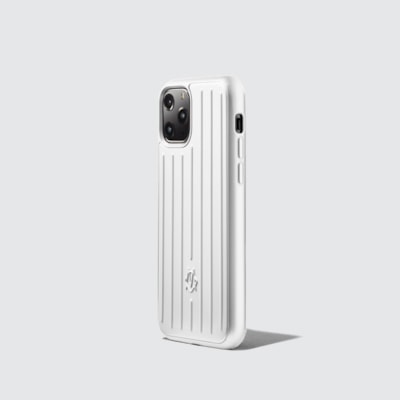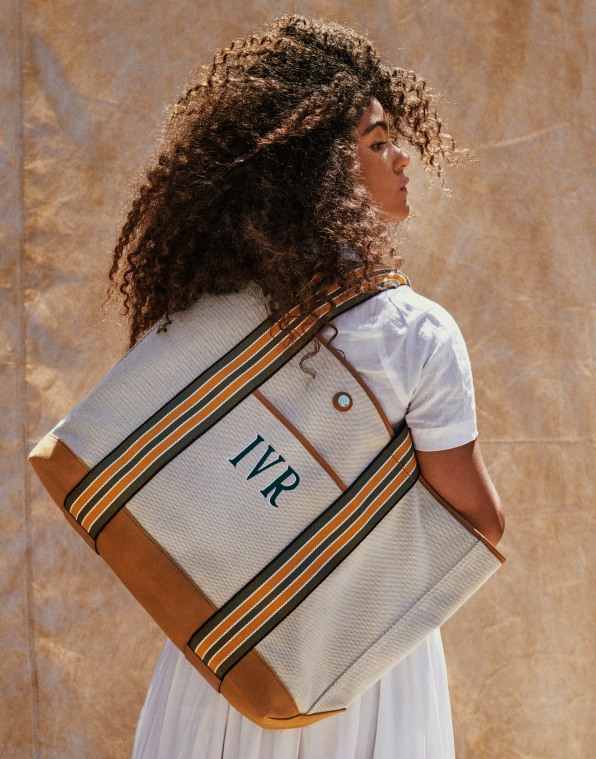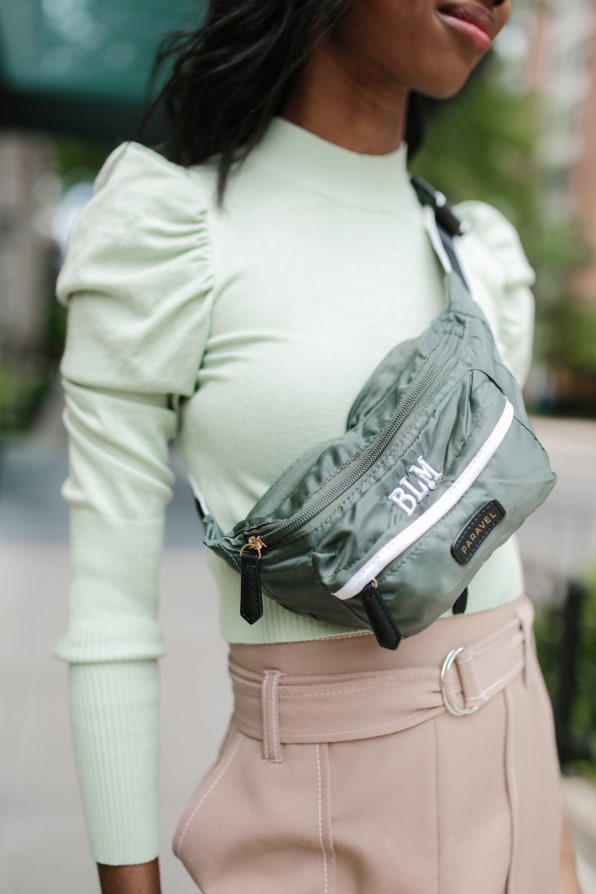Luggage brands have responded to plunging sales by releasing products for short-term travel. Will it be enough to keep them afloat?

In January, while most Americans were blissfully unaware that there was a pandemic working its way to their shores, Josh Udashkin was already planning for the crisis to come. As general manager of the luxury luggage brand Rimowa, he saw how travel had halted in China, causing consumers there to lose interest in suitcases. He suspected this would soon be the case everywhere, so he got to work, quickly bringing to market products that customers could use in quarantine.
This year, for the first time in Rimowa’s 122-year history, it launched products outside the luggage category, such as iPhone cases and sunglasses. Last week it released a handbag that is a miniature of its iconic hardshell suitcase, perfect for toting around hand sanitizer and extra masks.
Rimowa is not alone. The luggage industry has been hit hard by the pandemic. With a 70% decline in air travel, brands selling suitcases and accessories for flights saw an 80% drop in sales. Some brands are trying to pivot. Rimowa, along with startups Paravel and Away, for instance, have released products like fanny packs, duffles, backpacks, and beach totes for the way that many people travel today, which often involves heading to destinations by foot or car. The question is whether it will be enough to keep the brands afloat.
Early Warnings
Wheeled luggage was invented in the 1970s during the era of the jumbo jet, which made air travel more available, and affordable, to the masses. In the decades that followed, most suitcases were nondescript commodities, rather than branded products (unless you bought a $1,000 suitcase from a luxury label like Rimowa).
But that changed about five years ago, when a flood of venture-backed, direct-to-consumer luggage startups popped up, wooing millennial travelers with trendy suitcases. Their carry-on bags cost between $200 and $300 and were marketed as a ticket to a life of adventure and exploration. These brands exploded on Instagram, where influencers took pictures with them in exotic settings and glamorous vacation spots. But now that this golden age of unrestricted, relatively inexpensive global travel has ground to a halt, luggage brands are grasping for their next move.
Some have been able to change their strategies quickly, in part because they were alerted to the coronavirus early. “We saw early waves of the coronavirus slowly moving across different geographies,” says Andy Krantz, cofounder and co-CEO of Paravel. “We knew what was about to hit us. Travel spending was going to dramatically shift.”
Krantz says there was no way to get around the reality that luggage businesses would be hit early and hard by the pandemic. He points out that the world’s anxiety about COVID-19 has been interwoven with travel from the start. Travel bans were among the first restrictions Americans experienced, and many were worried about how the disease could spread in the circulating air of an airplane cabin.
Samsonite Group, the world’s largest luggage company, suffered a $953.4 million loss in the first six months of 2020, with monthly sales down more than 70% from the year before. Away cofounders Steph Korey and Jen Rubio wrote in a Medium post in April that sales had plummeted 90%, prompting the company to furlough half of its team and lay off another 10%. Paravel’s Krantz and Rimowa’s Udashkin say that sales at their companies went down as well, although they declined to disclose by how much.


Adapting To The New Normal
The design teams at both Paravel and Away began thinking carefully about how they could accommodate the needs of customers in this new reality. They conducted focus groups to learn more about customers’ changing lifestyles and how their products might fit into the picture. In Asia and Europe, for instance, as travel restrictions began to lift, many people took local trips. This foreshadowed a summer in the U.S. full of road trips and beach days; the sale of used cars spiked by 15% as people wanted to travel locally.
In response, Paravel fast-tracked the launch of a large tote designed for the beach, which quickly sold out. Away heavily marketed its suite of soft bags, including its duffles, backpacks, and weekenders, which appealed to road trippers. “People perceive duffle bags as better for road trips because you can compress and flatten them to create more space,” Hanly says.

Over the summer, the company launched a $35 belt bag made from an easy-to-clean nylon that can be used to carry items like hand sanitizer and extra masks. Designed to be folded up into a tiny square when not in use, the bag will also be handy in the future, when it can be packed into a suitcase or carry-on. The product sold out immediately, and Paravel has had to restock it several times.
At Rimowa, Udashkin says that product development ordinarily takes years. But the company was able to quickly bring forward some products that were already in the pipeline. The French luxury conglomerate LVMH purchased 80% of Rimowa in 2016 and was using its expertise in fashion to develop new product lines, including sunglasses. The brand has designed its new accessories to be visually similar to its suitcases, which are known for their vertical grooves. The brand’s new iPhone cases, for instance, carefully mimic this visual language, which is appealing to fans of the brand. “People who wanted a piece of Rimowa had something they could buy,” Udashkin says.
All of these brands say that sales of hardshell suitcases have improved slightly, particularly in European and Asian markets, although they are nowhere near what they were before the pandemic. Udashkin says that even though Rimowa’s suitcases cost upward of $1,000, there are still customers who are in the market for a higher-end product. “If they’re traveling domestically rather than internationally, or taking fewer trips, they might decide they can spend more on their suitcase,” he says. “What is clear is that our sales are no longer tied to air travel. We’re not seeing declines in sales anywhere near what the airlines are experiencing.”
The Future of Travel
The leaders of these brands are now asking themselves what travel will look like in the years to come. It is still very unclear, but it is possible that the pandemic could make certain types of travel less popular. As digital conference technology improves, people may find it less necessary to attend events in person. Short business trips may seem less crucial now that we’re so used to doing meetings via Zoom.
Krantz says that travel’s negative impact on the planet—particularly because it accelerates climate change—has been an ongoing conversation among Paravel’s customers. Thus the company has been focused on sustainability for several years, creating nylon bags and suitcases from recycled plastic and paying for the planting of trees to offset its carbon emissions.
“Behaviors have been changing so rapidly even over the last four years we’ve been in business,” Krantz says. “Consumers have been discussing the cognitive dissonance of visiting unspoiled environments in nature, but also realizing that travel has negative impacts on those very same environments.”
Krantz speculates that after spending so many months avoiding air travel and exploring nearby instead, travelers may not see international travel as the only option for a vacation, particularly if they are concerned about their climate impact. On a long weekend, they may travel to the woods nearby, rather than to another country. And if this continues, travel brands will continue expanding their product selection.
“There is a whole host of unknowns,” Krantz says. “The desire to travel is not going anywhere, that much is evident, but the question is whether people may think of travel differently. And perhaps it might even change for the better.”
"luggage" - Google News
November 03, 2020 at 09:00PM
https://ift.tt/3mPp23O
How Away, Rimowa, Paravel revamped for a post COVID-19 world - Fast Company
"luggage" - Google News
https://ift.tt/2MXqDoI
Shoes Man Tutorial
Pos News Update
Meme Update
Korean Entertainment News
Japan News Update

Tidak ada komentar:
Posting Komentar